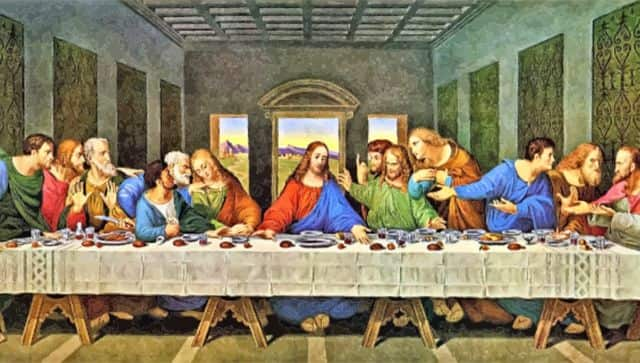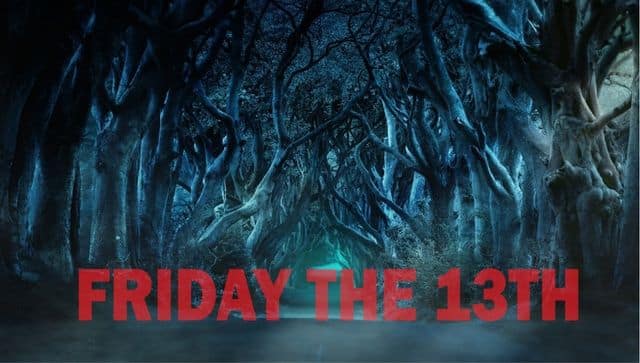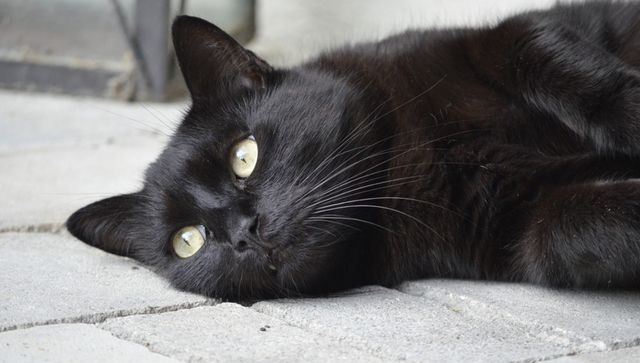Today is Friday the 13th, the union of the day and date rooted in superstition in Western culture. Like others superstitions – a black cat crossing your path or breaking glass, this day and date together are considered a harbinger of bad luck. This irrational dread of the date is described as paraskevidekatriaphobia – a form of triskaidekaphobia, which is a term for the fear of the number 13. This year the Gregorian calendar has aligned the ‘ill-fated’ date twice – in January and then again in October. While there is hardly any logical reason to determine why we fear certain things, there are always legends to justify such behaviours. Why is Friday the 13th viewed as an unlucky day in Western culture? Why is it hard not to ignore these entrenched superstitions? Let’s understand. The origins of Friday the 13th superstition Even before the combination of this number and day caused alarm, both Friday and 13 have evoked feelings of fear and unease in many cultures throughout history, notes CNN. One of the notorious presences of the number 13 can be traced back to the Last Supper, which was attended by Jesus Christ and his disciples on Maundy Thursday. The 13th guest to arrive was Judas Iscariot, the disciple who betrayed Jesus.
Jesus was crucified the next day – on Good Friday.
[caption id=“attachment_11980622” align=“alignnone” width=“640”] The 13th guest to arrive at the Last Supper was Judas. Wikimedia Commons[/caption] Much before the crucifixion, in Biblical tradition, it is believed that it was on Friday when Adam and Eve ate the forbidden fruit from the Tree of Knowledge; and it was a Friday when Cain, the firstborn son of Adam and Eve, murdered his brother, Abel. As per CNN, another legend concerning the superstition around the number 13 can be found in Norse mythology. Loki, the god of mischief, ruined a dinner party, bringing the number of attendance of gods to 13. Loki tricked the blind god Hodr, who killed his own brother Balder, the god of light, joy and goodness – thus casting the world into darkness. Earlier in the UK, Friday was known as Hangman’s Day – as those sentenced to death were usually hanged on this day, says Evening Standard. Renowned English author Geoffrey Chaucer wrote in the 14th Century-text Canterbury Tales: “And on a Friday fell all this mischance”. It was in the 19th century that Friday the 13th started being associated with misfortune. Steve Roud explains in The Penguin Guide to the Superstitions of Britain and Ireland that Friday and the number 13 is a “Victorian invention”, as per the CNN report. The concept finds a mention in Thomas W Lawson’s popular 1907 novel Friday, the Thirteenth, in which a broker takes advantage of the superstitions around the date to create a panic on Wall Street. The slasher film franchise Friday the 13th also solidifies the horror around the date. As per CNN, Dan Brown’s novel The Da Vinci Code published in 2003 has helped to validate “an incorrect claim” that the superstition emerged with the arrests and burning of hundreds of the Knights Templar members on Friday, 13 October 1307. Other days that spark fear Not all countries fear Friday the 13th. [caption id=“attachment_11980712” align=“alignnone” width=“640”]
The 13th guest to arrive at the Last Supper was Judas. Wikimedia Commons[/caption] Much before the crucifixion, in Biblical tradition, it is believed that it was on Friday when Adam and Eve ate the forbidden fruit from the Tree of Knowledge; and it was a Friday when Cain, the firstborn son of Adam and Eve, murdered his brother, Abel. As per CNN, another legend concerning the superstition around the number 13 can be found in Norse mythology. Loki, the god of mischief, ruined a dinner party, bringing the number of attendance of gods to 13. Loki tricked the blind god Hodr, who killed his own brother Balder, the god of light, joy and goodness – thus casting the world into darkness. Earlier in the UK, Friday was known as Hangman’s Day – as those sentenced to death were usually hanged on this day, says Evening Standard. Renowned English author Geoffrey Chaucer wrote in the 14th Century-text Canterbury Tales: “And on a Friday fell all this mischance”. It was in the 19th century that Friday the 13th started being associated with misfortune. Steve Roud explains in The Penguin Guide to the Superstitions of Britain and Ireland that Friday and the number 13 is a “Victorian invention”, as per the CNN report. The concept finds a mention in Thomas W Lawson’s popular 1907 novel Friday, the Thirteenth, in which a broker takes advantage of the superstitions around the date to create a panic on Wall Street. The slasher film franchise Friday the 13th also solidifies the horror around the date. As per CNN, Dan Brown’s novel The Da Vinci Code published in 2003 has helped to validate “an incorrect claim” that the superstition emerged with the arrests and burning of hundreds of the Knights Templar members on Friday, 13 October 1307. Other days that spark fear Not all countries fear Friday the 13th. [caption id=“attachment_11980712” align=“alignnone” width=“640”] Friday the 13th was not always considered a day- of bad luck. Image Courtesy: Pixabay/Graphic: Pranay Bhardwaj[/caption] In Greece and Spanish-speaking nations, Tuesday the 13th is regarded as unfortunate. Italy views Friday the 17th as a day of bad luck. Why superstitions are hard to let go Superstitions are hard to ignore, even for non-believers. Jane Risen, a behavioral scientist at the University of Chicago Booth School of Business, found in a 2016 study that both superstitious and non-superstitious people believe a bad outcome is likely to befall when they’ve been jinxed. “Generally speaking, I find that this occurs because the bad outcome springs to mind and is imagined more clearly following the jinx,” she told National Geographic. “People use the ease of imagining something as a cue to its likelihood.” She says such thinking becomes more pervasive on Friday the 13th. “Even if I don’t actively believe, just that fact that Friday the 13th exists as a known cultural element means that I entertain it as a possibility,” Risen adds. Another expert explains that once superstitions are embedded in a culture, “we tend to honor them”. “You feel like if you are going to ignore it, you are tempting fate,” Thomas Gilovich, a professor of psychology at Cornell University in New York, told National Geographic in 2013. Not always ominous
Friday the 13th was not always considered a day- of bad luck. Image Courtesy: Pixabay/Graphic: Pranay Bhardwaj[/caption] In Greece and Spanish-speaking nations, Tuesday the 13th is regarded as unfortunate. Italy views Friday the 17th as a day of bad luck. Why superstitions are hard to let go Superstitions are hard to ignore, even for non-believers. Jane Risen, a behavioral scientist at the University of Chicago Booth School of Business, found in a 2016 study that both superstitious and non-superstitious people believe a bad outcome is likely to befall when they’ve been jinxed. “Generally speaking, I find that this occurs because the bad outcome springs to mind and is imagined more clearly following the jinx,” she told National Geographic. “People use the ease of imagining something as a cue to its likelihood.” She says such thinking becomes more pervasive on Friday the 13th. “Even if I don’t actively believe, just that fact that Friday the 13th exists as a known cultural element means that I entertain it as a possibility,” Risen adds. Another expert explains that once superstitions are embedded in a culture, “we tend to honor them”. “You feel like if you are going to ignore it, you are tempting fate,” Thomas Gilovich, a professor of psychology at Cornell University in New York, told National Geographic in 2013. Not always ominous
Friday 13th was not always linked to bad things.
There is evidence that both Fridays and the number 13 were thought to bring good fortune. Friday had a “unique association” with the divine feminine in pagan times, says CNN. Derived from Old English, Friday means “day of Frigg.” Frigg or Frigga, a powerful sky goddess in Norse mythology, was associated with love, marriage and motherhood. The sky goddess was worshipped across Europe, and thus, Friday was believed to be a lucky day for marriage by Norse and Teutonic people, as per CNN. Jumping to modern times, singer Taylor Swift considers 13 her lucky number and has publicly endorsed the numeral. “I was born on the 13th. I turned 13 on Friday the 13th. My first album went gold in 13 weeks. My first No 1 one song had a 13-second intro,” she told MTV in 2009, according to CNN. “Every time I’ve won an award I’ve been seated in either the 13th seat, the 13th row, the 13th section or row M, which is the 13th letter. Basically, whenever a 13 comes up in my life, it’s a good thing.” With inputs from agencies Read all the Latest News , Trending News , Cricket News , Bollywood News , India News and Entertainment News here. Follow us on Facebook , Twitter and Instagram .
)